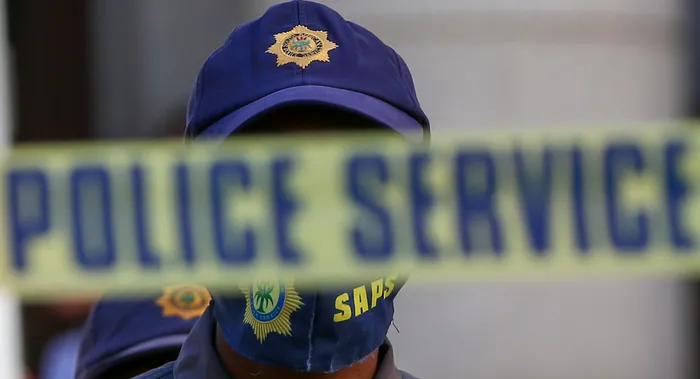Housebreaking remains SA's most common crime as perceptions of safety improve slightly
CRIME

The survey further illustrates that housebreaking, while a common occurrence, remains one of the least reported crimes to the police, with only about 43% of affected households choosing to report incidents — a statistic that has remained relatively stable over the past year.
Image: Leon Lestrade/ Independent Newspapers
Housebreaking has once again emerged as the prevailing crime impacting South African households in 2024/25, as revealed by the latest Governance, Public Safety and Justice Survey (GPSJS) issued by Statistics South Africa (Stats SA) on Tuesday.
Crime is one of the top factors that investors consider when making business and investment decisions, and the prevalence of crime in the country could significantly dent economic prospects.
The GPSJS insights paint a complex picture of life in a nation deeply affected by criminal activity.
With an estimated 1.5 million incidents reported, accounting for 5.7% of all households, the threat of burglary continues to loom large, particularly among male-headed households and those in KwaZulu-Natal province.
Despite the persistent nature of housebreaking, there is a glimmer of hope in the recent survey; perceptions of safety among the populace have marginally improved.
In 2024/25, 81.0% of individuals aged 16 and older reported feeling safe while walking alone in their neighbourhoods during the day, a slight increase from 80.4% in 2023/24.
However, the sense of security diminishes drastically during the night, where only 36.1% of respondents felt safe, indicating a sharp decline from 39.6% in 2020/21.
The survey further illustrates that housebreaking, while a common occurrence, remains one of the least reported crimes to the police, with only about 43% of affected households choosing to report incidents — a statistic that has remained relatively stable over the past year.
This highlights a disconnect between victims and law enforcement, raising questions about community trust and engagement with policing efforts.
Turning to personal crimes, Statistician-General Risenga Maluleke said theft of personal property has proven to be the most prevalent offence, impacting around 1.2 million individuals in 2024/25, a drop from 1.3 million the previous year.
Despite this decrease, a staggering 69% of victims opted not to report their experiences to authorities. This emphasises a growing concern regarding personal safety, particularly for males and metropolitan residents who are most likely to be affected.
"Theft of personal property is the most common crime experienced by individuals aged 16 years and older in South Africa. The number of affected individuals represents 2.6% of those 16 years and older. About 31% of individuals who experienced theft of personal property reported some or all incidents to the police," Maluleke said.
"The second most experienced crime by individuals was consumer fraud. A total of 566,000 individuals experienced consumer fraud, with an estimated 811,000 incidents. About 35% (34.9%) of the individuals reported some or all incidents to the police."
Meanwhile, incidents of consumer fraud have surged, jumping from 552 000 in 2023/24 to 811 000 in 2024/25, though thankfully, the percentage of victims reporting these cases to police improved from 30.7% to 34.9%.
As crime continues to pose a significant challenge across various demographics in South Africa, Stats SA said individuals were actively seeking ways to protect themselves. The proportion of adults taking precautionary measures against crime increased from 39.9% in 2023/24 to 43.3% in 2024/25.
Among these, the most common strategies included walking only during safer hours (29.9%) and installing physical security measures such as burglar doors (28.7%). Remarkably, nearly 80% of those surveyed indicated that these protective measures significantly contributed to their sense of safety.
Provincially, the data reveals stark contrasts in feelings of safety. Limpopo recorded the highest proportions of people feeling secure walking alone during the day (97.2%) and at night (64.2%).
In contrast, the Western Cape has a high number of residents who felt unsafe during daytime, with 31.4% expressing safety concerns, while Mpumalanga exhibited the highest share of individuals feeling unsafe at night (73.0%).
Lisa Schickerling, Democratic Alliance spokesperson on police, said the GPSJS survey shows a worsening crime crisis, with police failure, corruption and weak intelligence leaving communities unsafe and mistrustful.
"Our communities remain under siege due to violent crimes such as murder, assault, robbery, rape and sexual offences, with many cases going unreported due to deep mistrust of the South African Police Service (Saps)," Schickerling said.
"Without a functional intelligence unit that can anticipate, prevent, and disrupt criminal activity, communities remain exposed, and Saps is left reacting to crises instead of preventing them. Crime prevention strategies remain reactive instead of proactive, leaving communities exposed to repeat victimisation."
BUSINESS REPORT